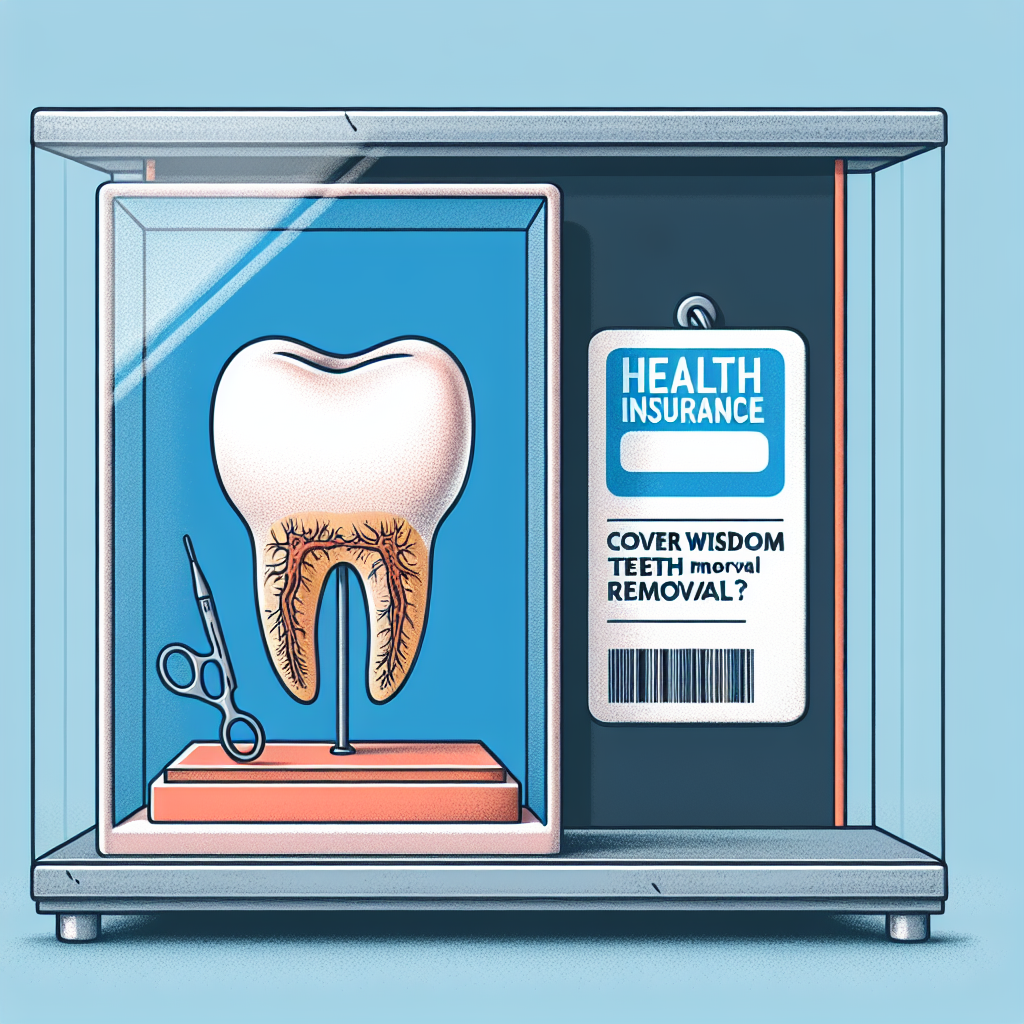Filed under Health Insurance on
Does Health Insurance Cover Wisdom Teeth Removal?

Many individuals encounter the common dental procedure of wisdom teeth removal at some point in their lives. These third molars, often emerging between the ages of 17 and 25, can lead to a myriad of issues such as pain, infection, and misalignment of other teeth. A pivotal question that arises during this time is: does health insurance cover wisdom teeth removal? Understanding the nuances of insurance coverage for this procedure can alleviate both financial concerns and help in planning treatment. This article delves into the details of health insurance coverage for wisdom teeth extraction, providing valuable insights for those facing this essential dental decision.
Understanding Wisdom Teeth Removal
Wisdom teeth removal, or third molar extraction, is often necessary when these teeth lead to oral health issues. Although not all wisdom teeth require extraction, problematic cases can result in pain, crowding, infections, or other dental complications. The procedure ranges from a simple extraction for fully erupted teeth to more complex surgical procedures requiring anesthesia and stitches. Understanding the intricacies of this process helps in assessing potential insurance coverage.
How Health Insurance Typically Addresses Dental Procedures
In general, health insurance policies are designed to cover medical-related issues rather than dental care. Most health insurance plans do not include standard dental services unless specified. Instead, these services are typically covered under separate dental insurance policies. Since wisdom teeth removal can straddle the line between being a medical necessity and a dental procedure, navigating insurance coverage can be challenging.
The Role of Dental Insurance
Dental insurance plans often cover a portion of basic and major dental procedures, including wisdom teeth removal. Typically, insurance plans will classify wisdom teeth extraction as an essential service if it is deemed medically necessary. Coverage typically includes a percentage of the costs associated with the procedure, though co-pays and deductibles will still apply. Therefore, individuals planning for wisdom teeth extraction should review their dental insurance policies to ascertain the extent of their coverage.
Circumstances Where Health Insurance May Cover Wisdom Teeth Removal
When examining if health insurance covers wisdom teeth removal, it is crucial to recognize circumstances that classify wisdom teeth extraction as a medical necessity rather than a purely dental procedure. Specific conditions can sometimes prompt health insurance to help cover the costs:
- Impacted Teeth: When wisdom teeth remain embedded in the jawbone and cannot emerge naturally, leading to pain and infections.
- Infections: Recurring oral infections and inflammation may require intervention.
- Facial Swelling: Swelling around the jaw and face as a result of impacted wisdom teeth can be considered a medical issue.
- Dental Alignment: When wisdom teeth disrupt the alignment of surrounding teeth, posing serious orthodontic concerns.
Navigating Insurance Plans: Practical Steps
Before undergoing wisdom teeth removal, it is essential to thoroughly understand your insurance policy. Taking the following steps can help ensure proper financial planning:
Review Your Policy
Start by reviewing your health and dental insurance policies to identify which plan provides the most comprehensive coverage for oral surgery. Cross-referencing both policies provides clarity on the benefits available and any potential limitations.
Consult with Your Insurance Provider
Contact your insurance provider directly to confirm the specifics of your coverage. Inquire about pre-existing conditions, policy year caps, and any need for pre-approval for wisdom teeth extraction. Clarifying policy terms can avoid unexpected surprises regarding out-of-pocket expenses.
Seek Professional Guidance
If the insurance process seems daunting, seeking advice from insurance experts or patient advocates can be beneficial. Dental professionals and oral surgeons may also offer insights into dealing with specific insurers and maximizing coverage.
Current Trends and Industry Opinions
Given the increasing awareness surrounding dental health and its correlation to overall well-being, some health insurance policies are beginning to offer more inclusive coverage options. Industry experts suggest a growing recognition of the medical implications of dental procedures.
Nevertheless, consumers should remain proactive in seeking insurance plans that provide comprehensive coverage, as navigating the gray area between health and dental insurance remains complex. Many dental professionals advocate for insurance reforms that address these ambiguities, benefiting patients in need of such procedures.
Balancing Cost and Care: Alternative Options
Even with insurance coverage, patients may face substantial out-of-pocket expenses. It is worth considering additional financial support options:
- Dental Savings Plans: These plans offer discounts on dental procedures and can be an economical alternative or supplement to insurance coverage.
- Care Credit: A healthcare credit card designed specifically for medical and dental expenses, offering flexible payment plans.
- Payment Plans: Many dental practices offer in-house financing with manageable monthly installments.
Conclusion
As with many healthcare-related inquiries, the question "does health insurance cover wisdom teeth removal?" involves multiple factors, including specific insurance policies, personal health considerations, and the prevailing healthcare environment. By understanding your insurance options and preparing accordingly, you can alleviate financial stress and ensure access to the necessary care for your oral health. Wisdom teeth removal may be a common procedure, but adequately navigating the world of insurance makes it manageable, ensuring that health and finances are both well cared for.





